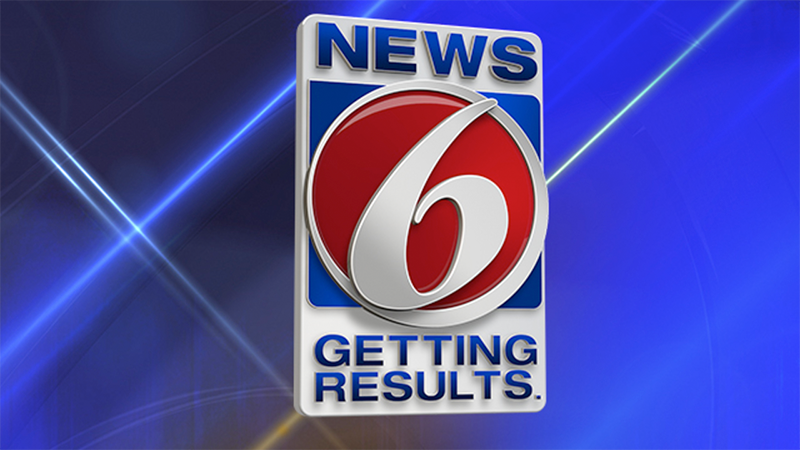ORLANDO, Fla. – The first statewide election in 2020 is just weeks away, which means voters need to start preparing now.
On March 17, Democrat and Republican voters will be able to choose their candidate of choice in the presidential preference primary election.
Recommended Videos
Before you head to the polls, here are some things you should know:
Photos of ballots
Before 2020, all voters were prohibited from taking pictures inside polling places. This year, the law is changing. Starting this election season, voters can take pictures of their ballots in Florida.
Mary Jane Arrington, the Osceola County Supervisor of Elections, stresses that voters should only take photos of ballots and not selfies with ballots. No other photography in polling places is allowed. Taking photos of yourself or others while voting is still illegal in the state of Florida.
[RELATED: Important election dates to remember in Florida for 2020]
“Our association was not in favor of this because of voter intimidation, but it passed so we will be dealing with voters taking pictures of their ballots and posting them on Facebook," Arrington said.
Arrington went on to say Osceola County does have “selfie stations” at polling locations. Voters can use these locations after they vote and are no longer in the voting booth area.
Closed primary
Florida is a closed primary state, which has always been the case. This means voters are eligible to vote only for the candidates of their own party in a primary election.
Florida voters who are registered with a minor political party or without party affiliation (NPA) are not allowed to vote for Democratic or Republican candidates in the March 17 presidential preference primary.
However, these voters may vote in nonpartisan contests. For example, Apopka, Bell Isle, Eatonville, Maitland, Winter Garden, and Winter Park all have city or town elections on March 17. Minor political party or NPA voters can still vote in their city elections if they live within the city limits.
Candidates on ballots
Central Florida counties have already sent in their ballot certifications to the state of Florida. Due to this, many former candidates, who are no longer running, will appear on ballots. As of Jan. 22, 12 Democrats and three Republicans are running. This number may get smaller after Super Tuesday on March 10, which is before Florida’s presidential preference primary.
The Orange County supervisor of elections sent News 6 a list of the names that will appear on the March 17 ballot:
Michael Bennet, Joe Biden, Michael R. Bloomberg, Pete Buttigieg, John Delaney, Tusli Gabbard, Amy Klobuchar, Deval Patrick, Bernie Sanders, Tom Steyer, Elizabeth Warren, and Andrew Yang are all running on the Democratic side. However, Cory Booker, Julian Castro, Joe Sestak, and Marianne Williamson will also appear on the ballots. Booker, Castro, Sestak and Williamson have all dropped out of the race.
On the Republican side, three other candidates will be listed along with President Donald Trump. Republican voters can vote for Roque “Rocky” De La Fuente, Donald J. Trump, Joe Walsh, or Bill Weld.
Voters will be allowed to vote for candidates who are no longer running in the presidential primary, however, those candidates cannot win.
Solicitation zones
The no-solicitation zones outside polling place/early-voting sites is now 150 feet. This means 150 feet from the entrance of buildings there cannot be campaigning or any form of solicitation.
However, the new law states anybody can go up to the 150-foot mark and campaign. Property owners can no longer deny a person the ability to get up to the 150-foot mark.
Bill Cowles, the Orange County supervisor of elections, says this rule is affecting polling places across the county,.
“I know here in Orange County we have already lost several polling places, mostly churches, and have had to get replacements for them because the owner did not campaign anywhere on their property," Cowles said.
Signature cure affidavit
Voters in Florida now have a longer period after the polls close on March 17 to prove their signatures. Election officials say if signatures on ballots do not match what is on file, voters will have two days after the election to turn in a signature cure affidavit.
The two-day period ends by 5 p.m. on the second day after the election ends. Cowles said election results on election night are unofficial because of this law change.
In addition, signature cure affidavits must be signed by the voter and be accompanied by a copy of either a “Tier 1” or “Tier 2” form of identification.
Tier 1 examples: driver’s licenses, passports, debit or credit cards, military identification cards, student identification cards, public assistance identification cards, Veterans Affairs identification cards and a Florida license to carry a concealed weapon, among other options.
Tier 2 examples: current utility bill, bank statement, paycheck or government document. Tier 2 identification is only required if the voter does not have a Tier 1 option.
